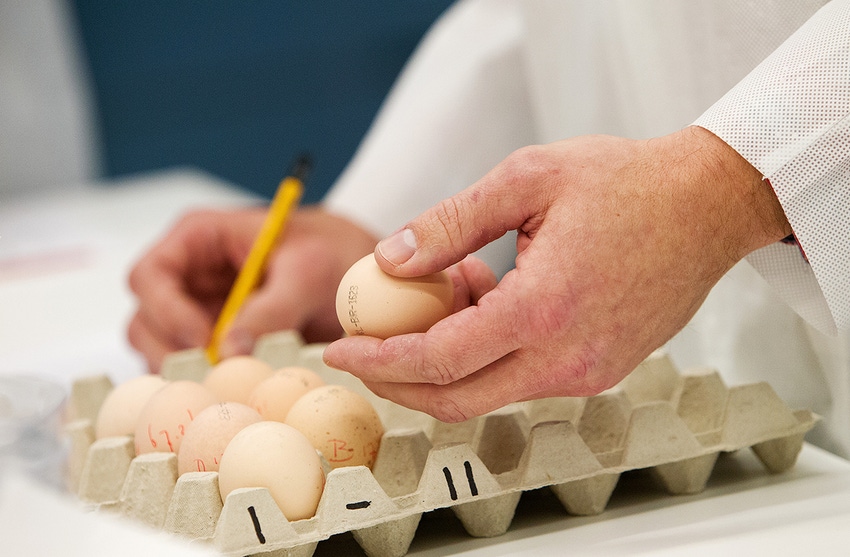Hands-on knowledge sharing may aid hatchery management
Interactive training sessions designed to strengthen participants' skills in hatchery management.
January 23, 2018

Earlier this year, a group of 14 hatchery professionals came together to take part in a three-day Hatchery Management Training program, according to information provided by Pas Reform.
Hosted by NatureForm, the course was delivered by Pas Reform Academy and included access to House of Raeford’s fully integrated new hatchery in South Carolina. Training is a unique contributor to NatureForm’s growth across the U.S. and Canada.
The course is not limited to customers of NatureForm and Pas Reform, although delegates must work in a managerial or senior role with responsibility for day-to-day hatchery management. On this occasion, attendance included delegates from leading hatcheries and a vaccine supplier.
Importance of people
“We may all recognize the increasing role of automation and data-based software and systems in the modern hatchery, but people are vital to the success of any hatchery operation,” course director Gerd de Lange said.
He added that it takes quality, up-to-date knowledge, high skill levels and "a positive, proactive attitude to deliver optimal production results. Machines and clever systems are only as good as the people operating them and translating results to fine-tune performance."
With this belief at the core of the Hatchery Management course, Pas Reform Academy’s approach to training is highly interactive.
The course is designed to strengthen participants’ skills in three areas: (1) the evaluation and analysis of hatchery performance, (2) the ability to recognize weaknesses in egg handling and incubation procedures and remedy them using the “tools” provided and (3) the knowledge to modify egg handling and incubation processes in order to improve hatchery performance.
Prior to attending, participants are invited to submit in advance key questions they would like to have answered. This ensures that, in addition to learning from trainers about the most up-to-date research and the latest techniques being employed in hatcheries worldwide, delegates also have the chance to share experiences and insights with each other.
Egg to chick optimization
In South Carolina, the presentations discussed and supported a variety of topics ranging from "egg quality from breeder farm to hatchery" to "hatchery climate control."
For practical sessions and hands-on training, House of Raeford’s state-of-the-art hatchery hosted two visits, the first focusing on the egg receiving and setter room, and the second dedicated entirely to the hatcher room and chick handling.
During these visits, egg and chick quality both were evaluated, and a breakout analysis was performed, all in a setting that gave participants the opportunity to see and experience firsthand the advanced incubation and hatchery automation systems in a live production environment.
Barry Vincent, a breeder/hatchery specialist with Tyson Foods, said sharing ideas and insights adds great depth to the experience.
“The training is really comprehensive. It’s amazing what can be covered in just three days," Vincent said. “Sharing insights with other hatchery professionals from their own experiences has been a really valuable aspect of the whole experience. The training has given me a range of new tools and insights that I can take away to improve analysis, processes and performance as soon as I get back to the hatchery.”
You May Also Like



